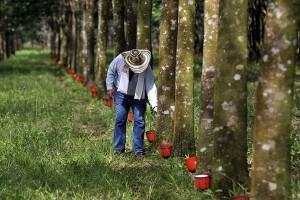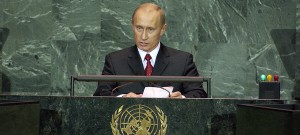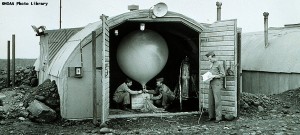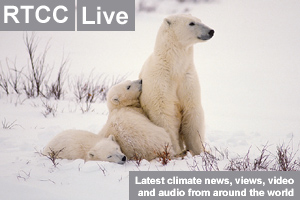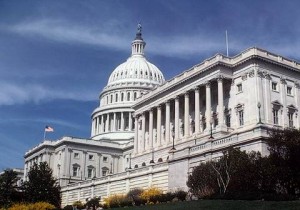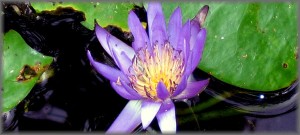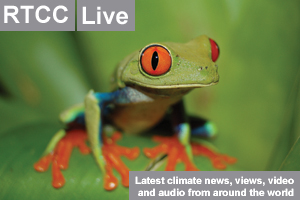Climate science
Photo of the week #30 – Deforestation and the Amazon’s blue-headed Parrot
The Amazon’s blue-headed Parrot is becoming increasingly vulnerable to deforestation across central and southern America.
Response to George Monbiot: The valuation of nature and ecosystem services is not privatization
The idea of placing a value on the environment to encourage its protection has become increasingly popular, but critics say it amounts to little more than the privatisation.
New Ocean Health Index shows “room for improvement”
New index aimed at scoring every coastal nation in the world on their contribution to the health of oceans finds a global average of 60 out of 100.
Melting over Greenland ice sheet shatters record, say scientists
Latest data shows melting over the Greenland ice sheet in 2012, has surpassed previous seasonal records – four weeks before the melting season is expected to end.
Russian government tells Greenpeace it will “balance economy and ecology” in the Arctic
Head of campaign group meets Russian Environment Minister to present its fears over arctic industrialisation.
Comment: Why it’s important we give the REDD mechanism a chance
REDD+ aims to deploy market forces to combat deforestation and land degradation. But is it working, and should we really put a price on trees and forests? Tara O’Shea from the Code REDD scheme argues it’s the best way forward.
New research: Oceans swamped with fresh water make tropical storms 50% more intense
New research finds fresh water in the oceans from rivers and rain could make tropical storms more intense, but what could this mean for a warming world?
Arctic could be ice-free in summer by end of the decade, according to European Space Agency
Images from polar satellite suggest sea ice in the Arctic could be disappearing at a rate 50% higher than previously predicted.
What’s stopping Russia taking a lead at the UN climate change talks?
Russia is a permanent member of the security council, vocal on the international stage and not shy of flexing its muscles. So why does it go quiet when the UN climate talks come around each year?
Photo of the week #29: The Galapagos islands’ unique position for monitoring climate change
The Galapagos Islands are home to some unusual inhabitants threatened by climate change but the isle’s unique placement to study global environmental change is less well known.
Why climate change was a concern in 1943
George Kimble’s ‘The Weather’, first published in 1943, reveals that climate change was a concern over 70 years ago.
Climate Live: NASA’s Hansen says he was “too optimistic” about climate change, US youths pursue climate court action & Olympic aquatic centre takes Gold for non-HFC use
James Hansen says he did not predict how rising temperatures would be able to drive extreme weather, US youths continue legal battles over climate change and how a 10 foot tall bird adapted to natural climate variation.
Greenland ice loss comes in fits and starts say scientists
New research finds Greenland’s ice sheet melt could happen in short bursts, showing that the melt witnessed between 2005 and 2010 may not have been unprecedented.
Video: Highlights from the first Senate Committee on climate change in 3 years
The US Senate has held its first committee on climate change in three years with the debate not about climate change policy, but whether or not it exists.
Oceans, forests and ecosystems continue to soak up rising man-made carbon emissions, for now, say scientists
New research shows that while a slow down of carbon absorption of the planet’s ecosystems is projected, today they continue to keep up with the rising levels of emissions being released into the atmosphere.
Photo of the week #28: Thailand’s famous and endangered water lilies
This week’s IUCN photo of the week is of a water lily, which relies heavily on clean water and healthy ecosystems to flourish
Report: World’s air pollution could be as bad as China’s by 2050 without urgent action from governments
Research in Atmospheric Chemistry and Physics journal suggests pollution and toxins in air could be ‘normal’ if new regulations are not adopted
LANDSAT at 40: NASA’s Earth as Art gallery
40 years of the LANDSAT satellite celebrated in five iconic pictures. NASA’s prized satellite has been a key tool for climate scientists revealing deforestation patterns and the gradual disappearance of polar ice.
Climate Live: Calls to cancel US ethanol quota amid drought, Greenpeace sub finds coral near Shell drill site
Farmers concerned about this year’s harvest have called on the Obama administration to suspend the ethanol quota while a report by Deloitte finds 90% of businesses are unprepared for the green economy.
Youth Profile #5: Bangladeshi youth fight to give world’s second most climate vulnerable country a voice
In the fifth in RTCC’s youth series, Abdullah Al Razwan Nabin from the Bangladesh Youth Movement for Climate talks about building capacity in the world’s 2nd most vulnerable country.

